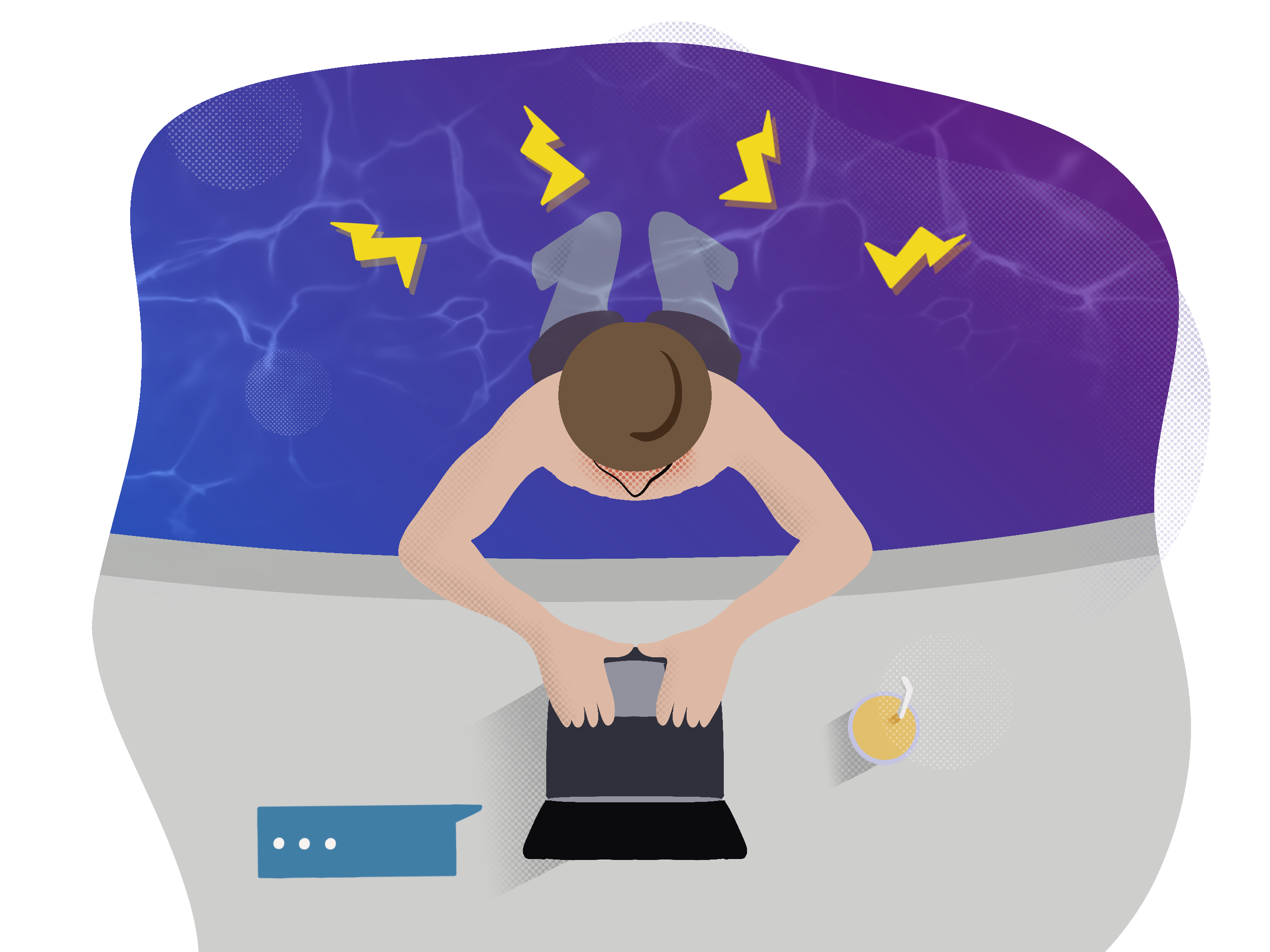- Get a quote
- Jobs
-
Employers
- Employers
-
Hire Staff
-
Our Sectors
-
Testimonials
-
About
- About
-
Our Team
-
Our Company
- Contact
- Blog
- EN | PL
Why it's important to disconnect from work

Posted by
HR GO Recruitment
on
Be honest: Can you remember when you went a full weekend without checking work emails or messages? Has disconnecting from work never or rarely occurred to you? Have you gone as far as choosing a holiday destination where you can fit in some important in-person meetings? And have holidays always included ‘checking in with the office’ or picking up work-related calls?
Combining downtime with work is not the greatest idea for multiple reasons we’ll explore later. And mobile technology has certainly increased the problem by connecting us all to each other, and to work, far more.
Many of us got into the habit of working late in the evenings or at weekends during pandemic lockdowns. Although things are now getting back to normal, a good chunk of people still feel burnt out from overwork. That makes taking breaks more important than ever.
You may have been burning the digital candle at both ends. Or, you may be concerned about employees on the verge of burnout. Either of these scenarios is likely to negatively impact your organisation. Here’s why:
The benefits of disconnecting from work
There’s plenty of evidence to show that disconnecting from work has positive effects on mental and physical health. And these effects positively impact work performance and productivity. In fact, recent studies show that a break makes you far more likely to be better at your job when you return. Other benefits to taking regular time off work include:
- Stress reduction
- Cognitive recovery
- Increased energy
- Better sleep
- Improved relationships
- Boosted morale
- Better work-life balance
Whether you take regular weekends without work mobile devices, or a digital detox holiday when you deliberately go offline, time out makes you better able to respond to the emotional exhaustion of overwork. Getting digital downtime in nature can even boost your creativity back at work.
Our recent poll showed 31% stayed connected to work
At HR GO, we recently ran a poll on LinkedIn asking ‘When you’re on holiday, do you find it hard to switch off from work?’ We also ran the poll on another LinkedIn recruitment page with similar results.
The good news is that a healthy 40% answered ‘Never. I’m in relaxation mode’. But 30% of people said they found it harder to relax and had to force themselves to disconnect.
For nearly a quarter of respondents (23%), they’re driven to check in at least once a day, and 8% are staying fully connected. So, nearly a third (31%) don’t fully disconnect from work.
Giving yourself time to switch off is easier said than done. Perhaps your mind is always on what’s happening at work 24/7. You might be worried about missing something important or falling behind your targets. Or you may be expected to reply to work messages no matter the time or whether you’re on annual leave
Workplace performance increases when employees regularly disconnect from work
If you’re always online and immediately respond to messages during the holidays or at weekends, that sets an expectation for your team to do it too.
And an ‘always-on’ culture doesn’t just have the potential to harm physical and mental health on an individual level. It might also be the tipping point for employees to think about leaving the company, too. In addition, studies show that encouraging employees to take recovery time from work improves their performance and productivity by providing the benefits listed above.
Some savvy employers have started to put policies in place to show that downtime is really valued. We’ve heard of one business in Germany which deletes any emails sent to people on annual leave.
That might be a drastic move, but organisations perform better when they encourage breaks from work for their employees. Is it time for you to get proactive about promoting and supporting employee downtime?
No matter your job title, it’s important for your health to take regular full breaks from work. And any family members taking those breaks with you will also benefit from your downtime. Returning to work, you’ll be refreshed, recharged and raring to go. And that holds true for your employees too.
Want more smart business tips and insights delivered straight to your inbox? Subscribe to our bi-weekly newsletter:
Categories
Featured insights
How to make sure WFH employees are productive
If your business is relying on WFH employees - learn how best to meet their needs to keep them motivated and productive.
Read moreRecent insights
So you didn’t get your dream job. Now what?
Being rejected for your dream job can feel devastating. But it's not the end of the world. Here's what to do before the next opportunity comes along.
Read moreVision board: your new career essential?
Creating a vision board provides visual inspiration to help you reach your goals. It could be your new favourite tool for career progression.
Read more